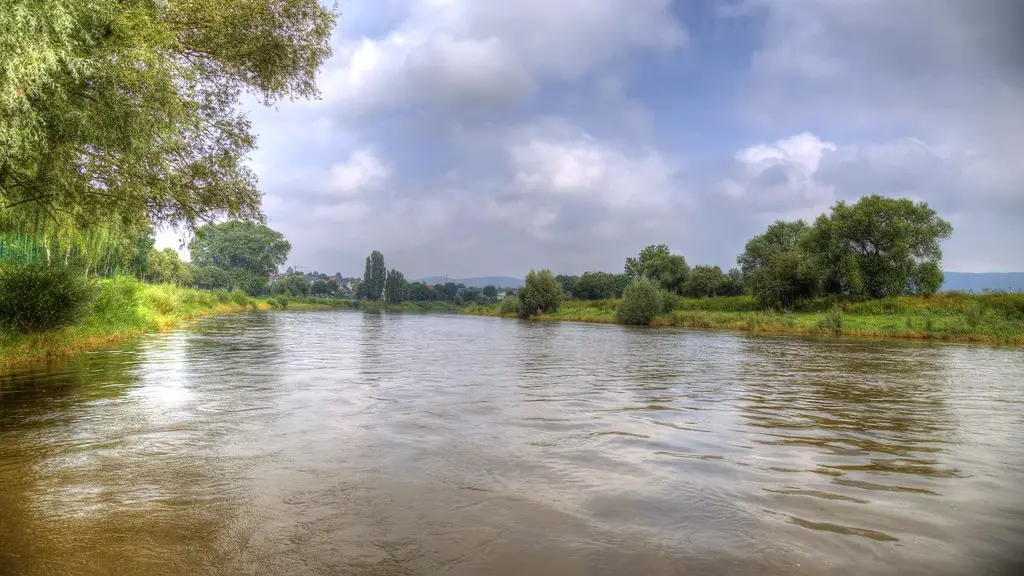Natural Causes of Mississippi River Flooding
The Mississippi River basin is one of the world’s most flood-prone regions. In addition to the frequency of flooding, the Mississippi River also experiences some of the largest and most damaging floods in the world. While water levels in the Mississippi River periodically rise and fall naturally due to precipitation, storms, and snowmelt, there are several other forces at play that are contributing to the high flood levels in the Mississippi River basin.
Unusual Weather Patterns
One of the primary causes of flooding in the Mississippi River basin is the weather. Unusual weather patterns such as heavy rainfall, high intensity storms, and snowmelt have contributed to high levels of flooding in recent years. In addition, climate change is causing unusual weather patterns to become increasingly more common. This can result in more frequent and higher levels of flooding, especially when coupled with other causes of higher water levels in the Mississippi River.
High Groundwater Levels
Groundwater levels can have a significant impact on water levels in the Mississippi River. When groundwater levels are higher than normal, more water is directed into the river. As a result, more water is available to flow upstream and lead to higher levels of flooding. High levels of groundwater also decrease the permeability of the soil, making it more difficult for the river to absorb excess water and reducing its ability to drain.
Damaged Watershed
The Mississippi River watershed encompasses a large geographic area and is home to numerous human activities that can impact the environment. These activities, such as deforestation and agricultural runoff, can lead to soil erosion and the disruption of natural water flow patterns. This can reduce the ability of the watershed to absorb excess water and contribute to higher water levels in the Mississippi River.
Lack of Flood Control Measures
The US Army Corps of Engineers has been responsible for designing and implementing flood control measures in the Mississippi River basin since the 1930s. However, many of these controls have become outdated or have not kept pace with the changing conditions in the region. This lack of updated flood control measures has been identified as a major factor in the increased flooding in the area.
Environmental Impacts of Flooding in the Mississippi River
Flooding can have a variety of environmental impacts on the Mississippi River basin. The most noticeable impact is often the destruction of homes and businesses as a result of flooding. The Mississippi River is an important source of income for many people in the region and flooding can devastate the local economy. In addition, flooding can cause significant damage to the natural environment. Rocks and sediment can be washed away, disrupting the local ecosystem and posing a danger to wildlife.
Health Concerns Due to Flooding
Flooding can lead to a variety of health concerns. Waterborne illnesses, such as cholera and dysentery, are of particular concern in areas that have been affected by flooding. These illnesses can spread rapidly through contaminated food and water, posing a risk to local communities. Contamination of drinking water can also be a major health concern in areas affected by flooding.
Costs of Flooding in the Mississippi River
The costs of flooding in the Mississippi River basin can be substantial. Repairing and rebuilding damaged infrastructure can be expensive and can cause financial hardship for local communities. In addition, businesses in the region may suffer losses due to the disruption caused by flooding.
Public Awareness and Mitigation Efforts
Efforts to mitigate the impacts of flooding in the Mississippi River basin have been ongoing for many years. Many communities have developed awareness initiatives to inform their citizens about the potential dangers of flooding and the steps they can take to minimize risk. In addition, the US Army Corps of Engineers has been involved in a number of flood control and mitigation projects in the Mississippi River basin.
Role of Government in Flood Control
The role of the federal government in flood control in the Mississippi River basin has been significant. The US Army Corps of Engineers has been responsible for numerous flood control projects in the region, many of which have been funded by federal grants. In addition, state and local governments have implemented their own flood control efforts in the region.
Flood Insurance and Disaster Assistance
Flood insurance and disaster assistance programs have been crucial for providing financial assistance to communities affected by flooding in the Mississippi River basin. These programs are often funded at the federal level and are designed to provide much-needed assistance to homeowners and businesses in the region.
Environmental Impact of Flood Control
The environmental impacts of flood control measures in the Mississippi River basin are complex. In some cases, flood control efforts can have positive environmental effects, such as reducing sedimentation in the river and protecting wildlife habitats. In other cases, flood control measures may disrupt local ecosystems or be counterproductive, leading to increased flooding in other areas.



